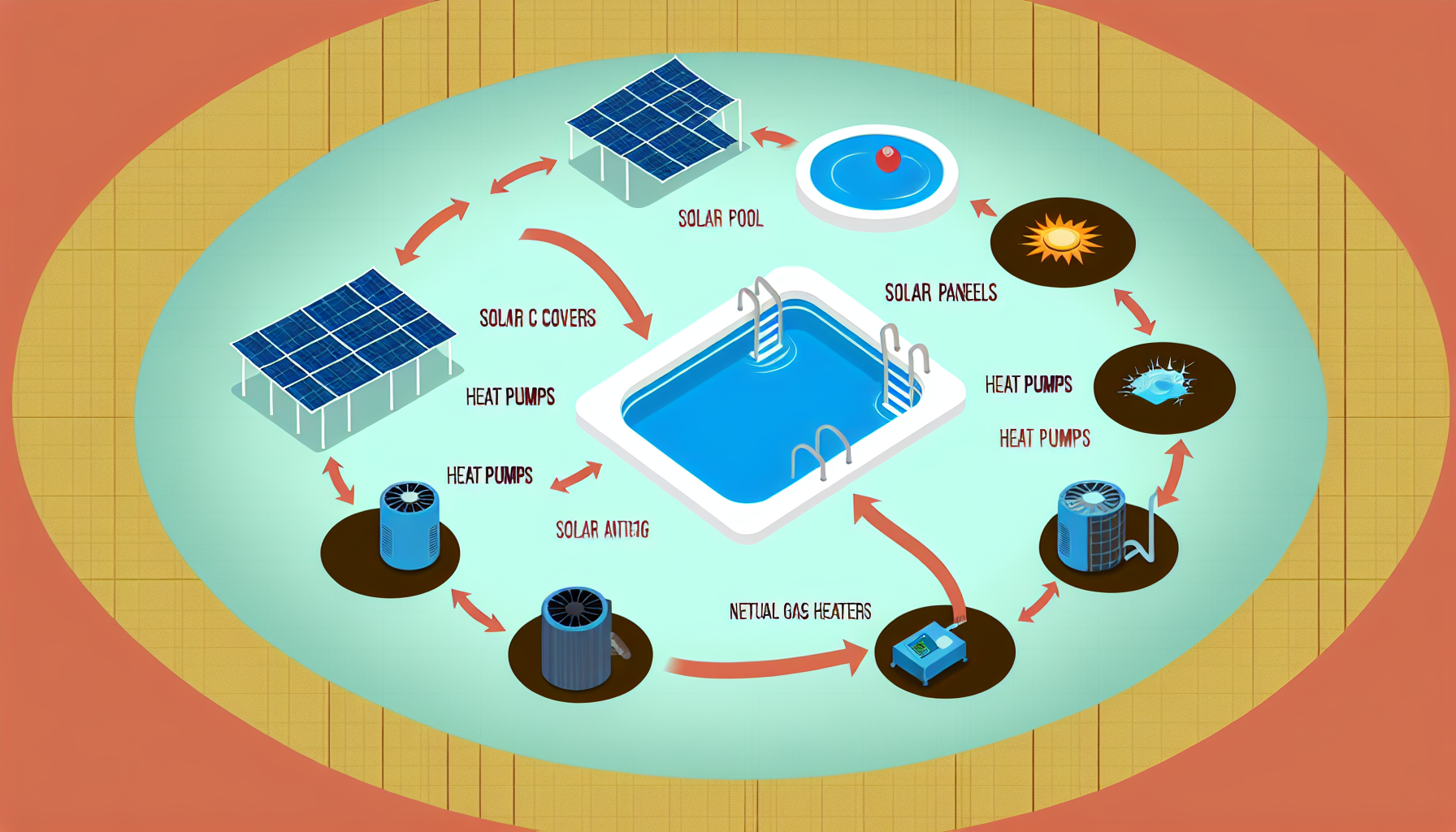Why Pool Heating is a Smart Investment
Owning a pool in New Zealand is fantastic in the hot summer months, but it can be frustrating when the water is too cold to enjoy for most of the year. Investing in pool heating allows you and your family to swim more often, getting the most out of your pool.
The main challenge is choosing a heating system that is both effective and cost-efficient. With power prices constantly rising, finding a balance between performance and affordability is key. Here, we’ll explore the best options for heating your pool without breaking the bank.
Solar Pool Heating – A Free Energy Source
One of the most cost-effective ways to warm your pool is through solar heating. By harnessing the sun’s energy, you can heat your pool with minimal operating costs.
How it Works
Solar pool heating systems use a series of black tubes or panels, usually positioned on your roof or another sunny location. Your pool pump circulates water through these tubes, where it absorbs heat from the sun before returning to the pool.
Pros
✅ Low ongoing costs – after installation, the sun’s energy is free!
✅ Environmentally friendly – reduces your carbon footprint.
✅ Long lifespan – systems typically last 10–20 years.
Cons
❌ Dependent on sunlight – can be less effective in winter or cloudy weather.
❌ Higher upfront cost – installation can be pricey, but savings over time are significant.
Where to Buy in NZ
- The Warehouse – Offers affordable solar heating mats for small pools.
- Narellan Pools – Provides professional solar heating installation services.
Heat Pumps – Energy Efficient & Reliable
Pool heat pumps are an excellent option if you’re looking for a reliable heating method with manageable running costs. They work by extracting heat from the air and using it to warm your pool water.
How it Works
A heat pump uses electricity to transfer heat from the surrounding air into the pool water, much like a reverse-cycle air conditioner. Because they don’t generate heat but rather move it, they are much more efficient than traditional electric heating.
Pros
✅ Energy efficient – for every unit of electricity used, they can produce 4–5 units of heat.
✅ Works in most weather conditions – doesn’t rely solely on sunlight.
✅ Consistent heating – maintains a steady water temperature.
Cons
❌ Higher installation cost – but lower operating costs make up for it.
❌ Slower heating time – best for maintaining a steady temperature rather than quick heating.
Where to Buy in NZ
- Pioneer Pools – Supplies high-quality pool heat pumps for various pool sizes.
- Para Rubber – Sells heat pumps for smaller pools with DIY installation options.
Pool Covers – An Essential Cost-Saver
No matter which heating system you choose, pairing it with a pool cover significantly boosts efficiency. A pool cover helps retain heat, reducing the energy needed to maintain a warm temperature.
Types of Pool Covers
- Solar Covers – These floating covers absorb and retain heat from the sun while reducing evaporation.
- Thermal Blankets – Provides excellent insulation, keeping the warmth in overnight.
- Automatic Covers – More expensive but convenient, offering both heat retention and safety benefits.
Benefits of Using a Pool Cover
✅ Cuts heat loss by up to 70% – reduces energy costs.
✅ Minimises water evaporation – saves on water and chemicals.
✅ Keeps debris out – reducing cleaning time.
Where to Buy in NZ
- Pool & Spa Warehouse – Offers various pool covers to suit different needs.
- Bunnings NZ – Stocks affordable solar pool covers for easy DIY use.
Do-It-Yourself (DIY) Pool Heating Hacks
If you’re on a budget or looking to experiment with a simple warming solution, here are a few DIY methods to try:
- Black Hose Trick – Lay a long black garden hose in the sun and run your pool’s water through it before returning it to the pool. The sun naturally heats the water in the hose.
- Wind Barriers – Installing fencing or hedging around your pool area can reduce heat loss due to wind exposure.
- Dark Pool Liner – If you’re installing a new pool, a darker liner absorbs and retains more heat.
Choosing the Best Option for You
The right pool heating option for you depends on your budget, pool size, and climate.
- For the lowest running costs, a solar heating system is the best long-term investment.
- For reliable year-round heating, a heat pump is a great balance between efficiency and effectiveness.
- For anyone on a strict budget, a solar cover is an affordable way to make a noticeable difference.
No matter which solution you go with, adding a pool cover will boost efficiency and help keep heating costs down.
Do you have experience with pool heating in New Zealand? Let us know what works best for you in the comments! 🚀💦


Leave a Reply